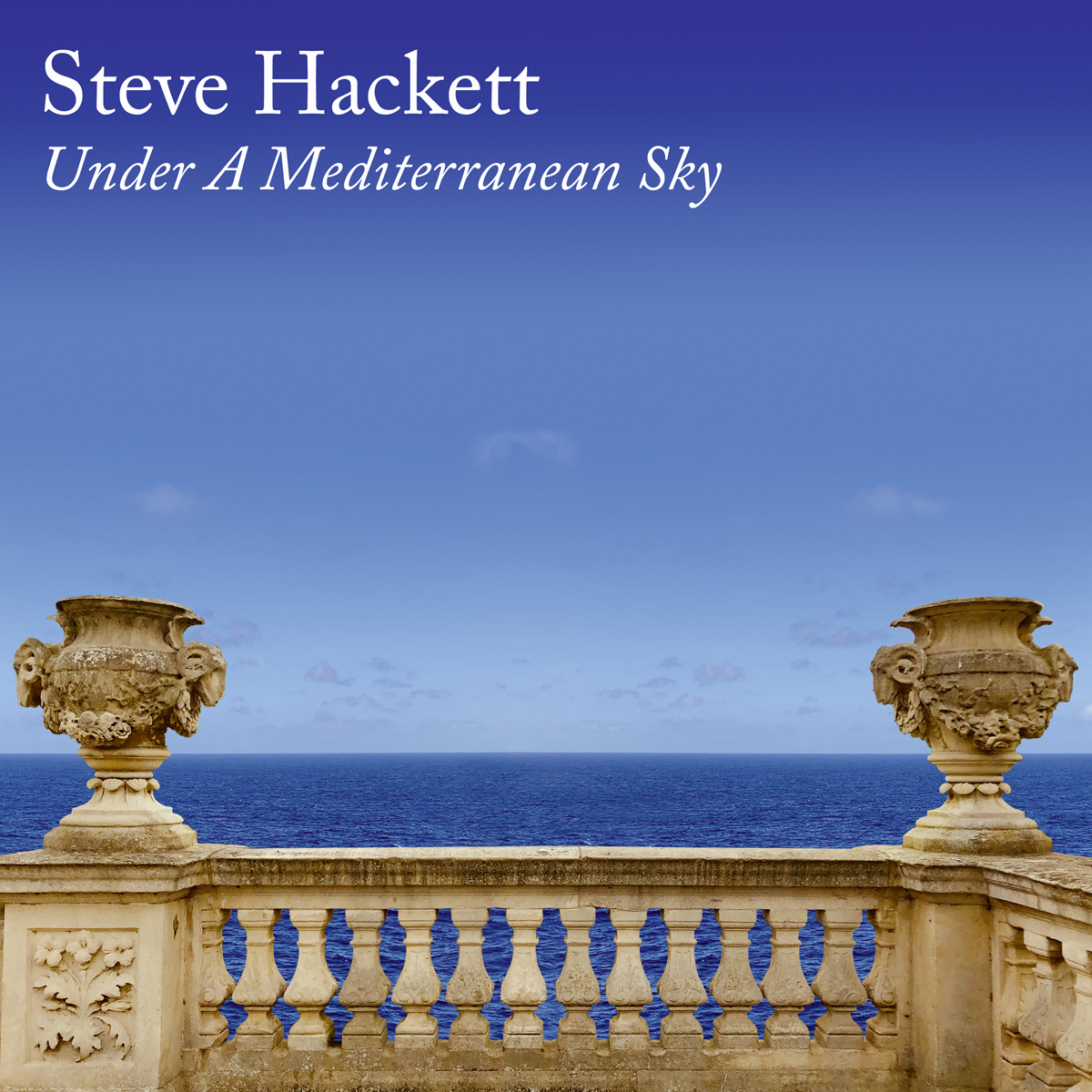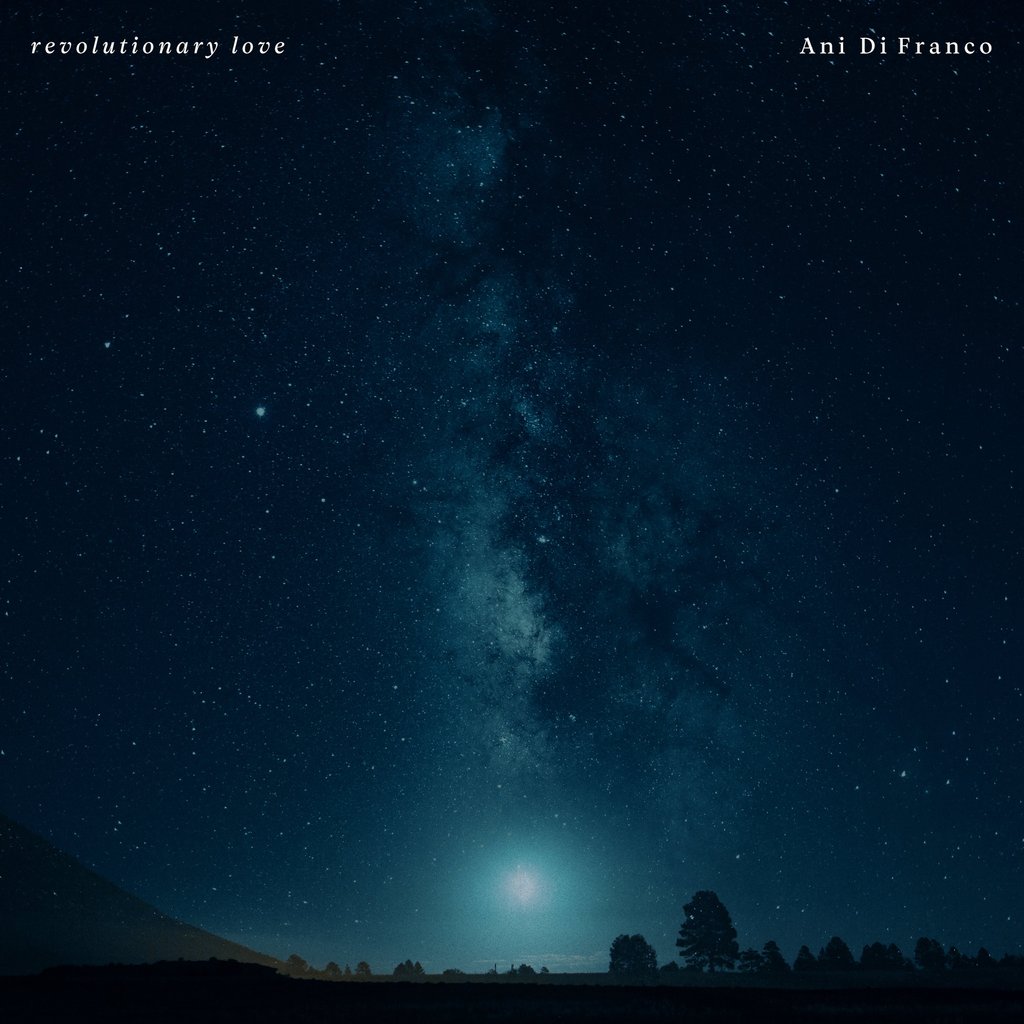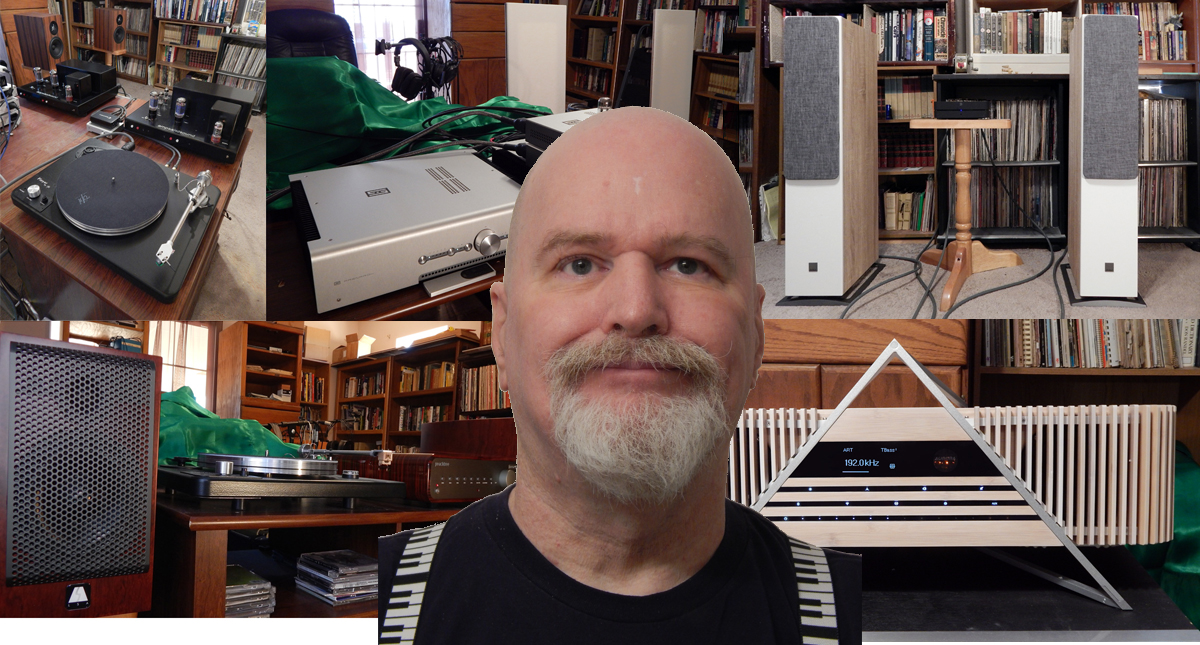A Little Old A Little New
The first thing to catch my eye this month was Steve Hackett’s new album “Under A Mediterranean Sky”. For those unfamiliar with Steve Hackett, he was the genius behind what was the sound of “Classic” Genesis during their peak Peter Gabriel years. While Peter was the heart and soul of the band, it was Steve that defined the sound. As a keyboard player, it was Tony Banks that drew me into the band and it took me many years to realize that Genesis was in fact a Guitar band. It was Steve’s multilayered tapestry of intricate guitar work that forced Michael Rutherford to switch back and forth between bass and 12 string guitar (both electric and acoustic) while maintaining the bass lines on bass pedals (there were songs that required Steve, Michael, and Tony to play guitar when they performed live). Though this would make it seem as if Michael was doing the lion share of the work, there was a stark change in the sound of the band when they shifted from Anthony Philips to Steve and again once after Steve left and Michael took over, in fact, the change was more noticeable than when Peter left.
Steve Hackett was not, and is not your standard rock guitarist. Nor would I call him a Jazz guitarist as his compositions are more classical in nature, yet I wouldn’t call him a classical guitarist either, as classical guitar tends to be a solo instrument and Steve’s playing is more akin to a first chair violinist, weaving a sound that draws together all the almost orchestral elements of their songs. In this regard, “Under A Mediterranean Sky” is a departure from normal Steve Hackett fare in that it is solo acoustic classical guitar fronting an orchestra.

The first track “Mdina (The Walled City)” sets the mood opening with a Rachmaninoff style tympani roll and horn crescendo building into a pulsating full orchestra allegro overture which breaks off to Steve’s initial Spanish guitar licks which continue through the piece as a dialog between orchestra and guitar eventually blending together to highlight the themes introduced on guitar evoking images of onion spired palaces.
“Adriatic Blue” is a straightforward classical guitar piece underscored by Steve’s virtuoso playing style.
This is followed by “Sirocco” a deep contemplative piece of guitar punctuated by delicate robust string passages as well as a smattering of Mediterranean percussion instruments creating a three-dimensional field of sound.
Track four is “Joie de Vivre” a simple fugue on solo guitar sewing together a tapestry of melodies.
“The Memory of Myth” opens with solo violin reminiscent of “Scheherazade” which transitions into harp-like harmonics on the guitar, filling out with strings backing guitar, which gently evolves into Steve’s signature tapestry of guitars.
This is followed up by “Scarlatti Sonata” a fairly straight-up classical guitar interpretation of an unidentified Domenico Scarlatti piece (the only composition on the album not written by Steve Hackett and Roger King).
Next was “Casa Del Fauno” a gentle full orchestral number with some really magical flute duets interwoven, with the guitar and orchestra playing background.
“The Dervish and the Djin” is a real Rimsky-Korsakov meets Carl Orff piece, with Steve’s guitar playing the Dervish in a sitar-like whirlwind in counterpoint to the oppressive strings and woodwinds and an epic synth solo.
“Lorato” evokes images of early Hackett acoustic solos simply reveling in his virtuoso playing style.
Displaying a very Greek feel “Andalusian Heart” once again presents solo guitar backed by gentle orchestral and woodwind auras.
The final track “The Call of the Sea” opens with a sea chantey simplicity on solo guitar devolving into greater and greater complexity then breaking to allow a moment of orchestral theme building, followed by orchestral backed guitar culminating in an appropriate mellow ending to the album.
“Under A Mediterranean Sky” truly captures its subject matter in a pastiche of acoustic guitar and orchestra. It also represents an epic achievement, as research reveals that this album was conceived, performed, and recorded during the pandemic as he had to leave behind his electric guitars and gear when his North American tour was canceled and he returned home, left with little to do and his trove of acoustic guitars.
I intended to experiment with some artist that I was unfamiliar with as this is my primary draw to Qobuz, to discover new music, but then I saw a new Ani Difranco release “Revolutionary Love” and could not pass up an old favorite.

The eponymous opening track “Revolutionary Love” gave off a Modern Slow Jazz/R&B vibe. The mellow minimalistic arrhythmic composition was punctuated by an offbeat circular bass line underscoring Ani’s liquid vocal. This was followed up by “Bad Dream” which added a touch of gospel feel to the mix.
The staccato strings of “Chloroform” belied the title being anything but sleepy, the cacophony of syncopated instruments creating its own sort of energy. While on the other hand, “Contagious” was totally true to its name, its complex weaving of rhythms drawing the listener ever in.
“Do or Die” offered a Latin Jazz Beat aroma evoking Samba like body swaying.
Eliciting images of Progressive Jazz greats like Return to Forever, Mahavishnu Orchestra, and Weather Report “Station Identification” opens with transcendental keyboards and strings flowing from one dramatic theme to another in a relative stew of sound.
“Shrinking Violet” strikes out in a different direction with a heavy Blues Guitar flavor and Dirge downbeat cadence.
Acoustic Guitar and Rhodes Piano give “Metropolis” an almost Country Ballad touch, bouncing off all of your emotional strings.
Uncharacteristically, “Simultaneously” is a pretty straightforward fast-paced Smooth Jazz piece highlighting Ani’s vocal nuance.
The penultimate track is “Confluence” which is exactly that, a confluence of mystical and magical musical sounds, which pretty much defines all of Ani Difranco’s music.
“Crocus” is a very personal and emotional tune, presenting the perfect culmination for an amazing album.
What Ani Difranco’s “Revolutionary Love” is not is boring, with its myriad of compositions and themes performed by virtuoso artists that starts as a wonderful masterpiece and builds to something epic with each passing song.
Steve Hackett and Ani Difranco are two very different artists, from very different genres and backgrounds, yet the similarity in complexity and masterful performance of these two albums, though very divergent in sound and theme, is too serendipitous not to take note of and remark upon. Both are fantastic efforts from tried and true artists and well worth a listen.








Leave a Reply
Want to join discussion?
Feel free to contribute!